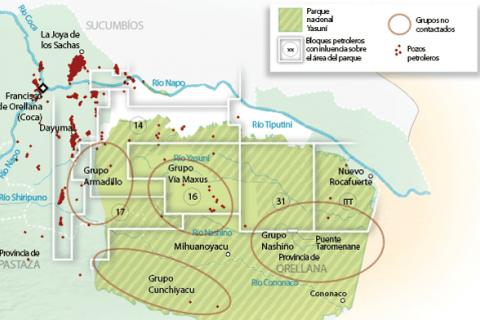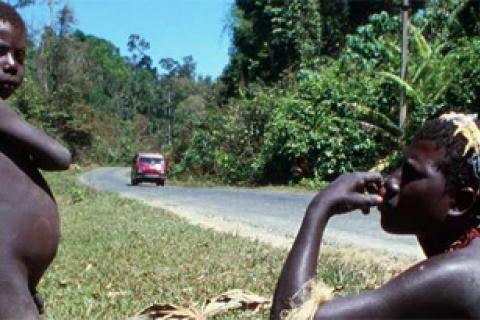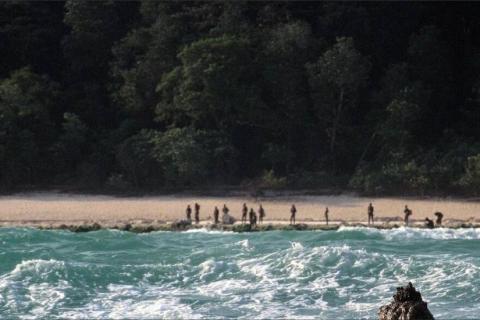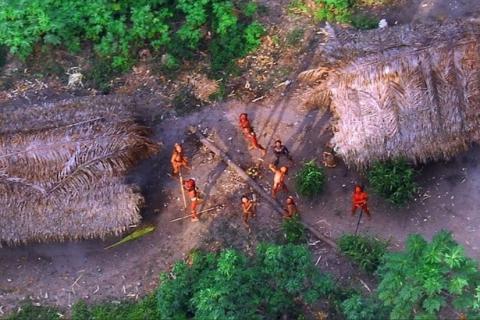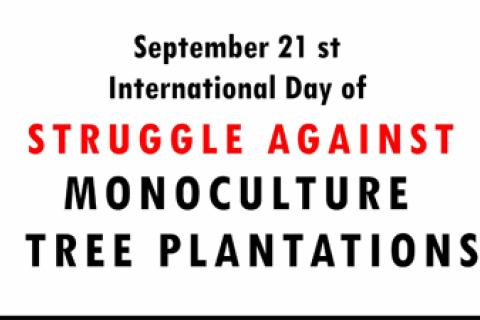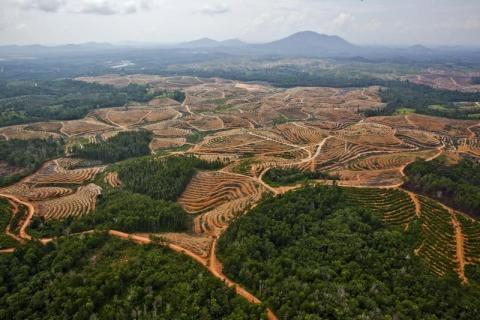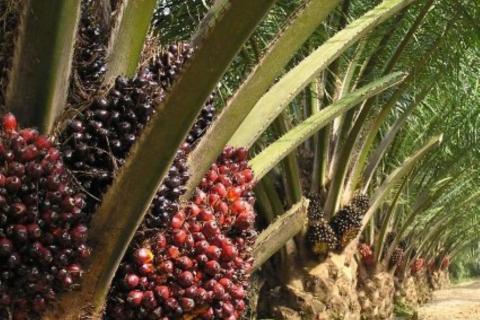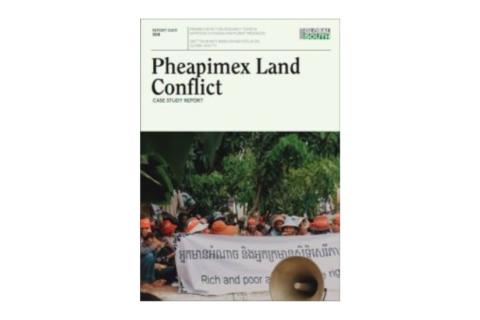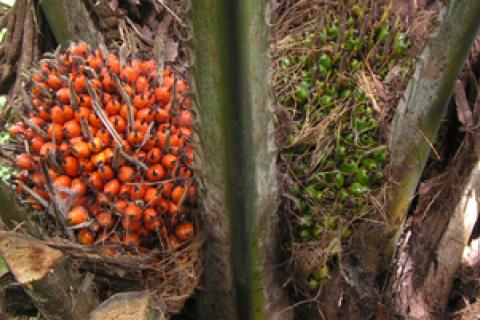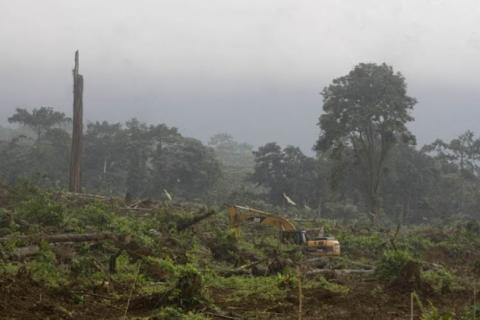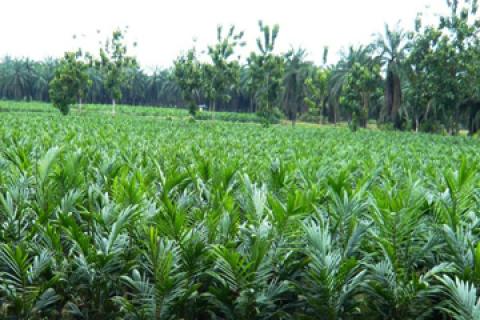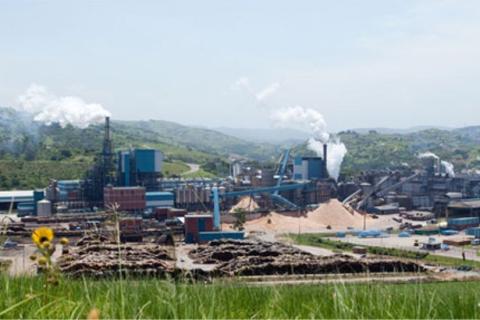Bulletin articles
Photo: Survival International
Another major threat looming over some groups of isolated indigenous peoples is mass tourism. In some cases, private operators and local guides organize flights over areas where these groups are known to live, for the entertainment of tourists.
Photo: uncontactedtribes.org
1. A view from the recently contacted Jarawa
The Jarawa, from India’s Andaman Islands have only had friendly contact with settlers living near their forest since 1998. Their sudden appearance out of the forest without their bows and arrows, after more than a century of hostility, is widely credited to Enmai, a young Jarawa man. In 1996 Enmai spent six months in hospital after being found by settlers with a broken leg.
What is the sense of another International Day of Struggle Against Monoculture Tree Plantations, which will take place this coming September 21? Some might ask why such a day is celebrated, since these plantations continue to grow and expand around the world. Is there really any way to stop the expansion of industrial plantations of oil palm, pine, acacia, eucalyptus and rubber trees?
Here in Indonesia, ever since a child entered the school, he/she has been familiar with “Merauke” through a patriotic song entitled “Dari Sabang Sampai Merauke” (lit. from Sabang to Merauke – from the westernmost to the easternmost part of Indonesia). The song talks about the unity and glory of Indonesia across its large and small islands reaching from Sabang, the westernmost part, to Merauke, the easternmost.
Few places in Southeast Asia can match the distinction of Palawan, in the Philippines. This is home to seven protected areas, a declared “Game Refuge and Bird Sanctuary” since 1967 and a “Mangrove Reserve” since 1981. UNESCO declared the whole Province a ‘Man and Biosphere Reserve’ in 1990.
The company promised to increase forest cover but they planted cassava; cassava is not a tree; a cassava plantation is not a forest.
(Resident from Ansar Chambor, Pursat, Cambodia)
In one of his last works – “Oil palm in Africa: Past, present and future scenarios”, published in December 2010 – our beloved friend and colleague Ricardo Carrere provided an overview of the history and current status of monoculture oil palm plantations in Africa (see http://wrm.org.uy/oldsite/countries/Africa/Oil_Palm_in_Africa.pdf).
